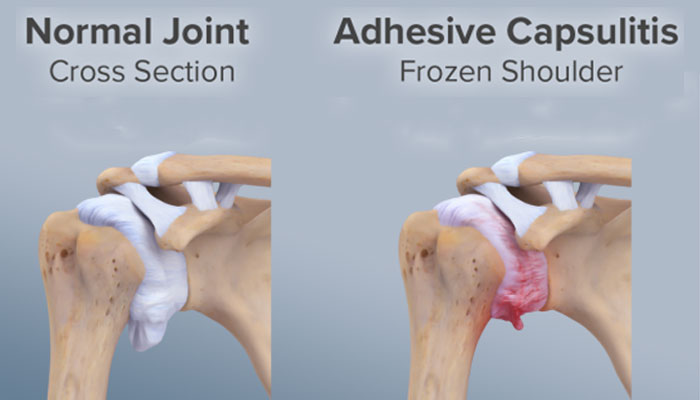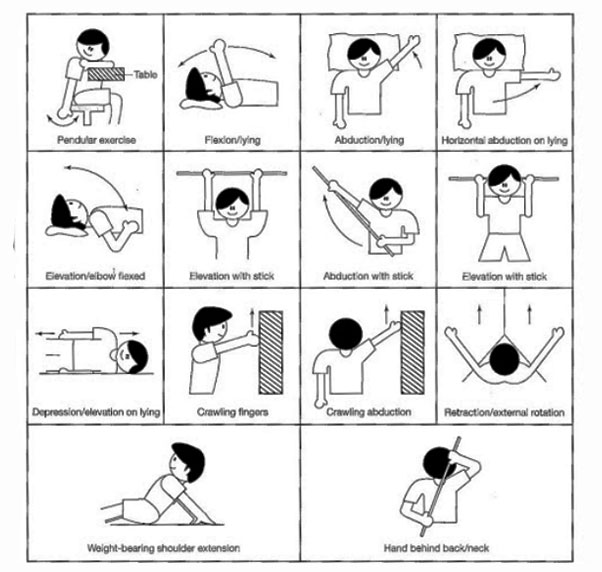Frozen shoulder is an extremely common condition affecting the shoulder joint. In this condition the patient complains of continuous pain in the shoulder with decreased movements. Usually the pain is more at night and increases with movements.
Frozen shoulder occurs because the capsule (covering) of the joint becomes inflamed, thick and stiff. It is called ‘Frozen’ because more the pain is felt, the less likely patient moves the shoulder. This lack of use makes the capsule to thicken and tighten more, thus increasing the problem. It is a vicious circle which needs to be broken to treat this condition. If left untreated it can take 3-4 years to resolve with a lot of suffering.
Frozen Shoulder
Who is at risk?
Age: Middle aged people, generally between 40-60 years of age.
Gender: Women > Men
Diabetes: 10-20% of diabetics develop frozen shoulder.
Recent shoulder injury
Treatment
Most people with frozen shoulder improve with simple treatments.
Our objectives are:
1. Pain relief
2. Getting movements back
- Anti-inflammatory medicines
- Physical Therapy
- Steroid injection
- Manipulation under Anesthesia
They decrease the inflammation of the capsule thus decreasing pain and improving movements.
There are specific exercises that help restore motion. They include stretching and range of motion exercises which can be done as a home program.
Steroids are powerful anti-inflammatory medicines. When injected inside the shoulder, they act directly on the inflamed capsule giving maximum relief.
If the above treatments do not relieve symptoms the next step is manipulation under anesthesia. The patient is put under anesthesia and the shoulder is moved through its complete movements with some force. This breaks all the adhesion's inside the shoulder and the tight capsule as well. Post procedure movements are considerably increased and physiotherapy is done to prevent recurrence of adhesion's.
- Surgery – Arthroscopic Release
- Get your sugar levels and thyroid levels tested regularly. Deranged levels increase the risk of frozen shoulder.
- After a shoulder injury start your physical therapy as soon as possible. Consult a doctor to develop a rehabilitation protocol depending on the injury.
- If you start developing shoulder pain and stiffness consult a doctor immediately to prevent worsening. Results are best when the treatment is started early.
A minority of patients will not benefit from any kind of treatment. Surgery is indicated for this subset of patients. Pencil sized instruments are inserted inside the shoulder and the tight and inflamed capsule is cut. The adhesion's inside the joint are also cut making the movements free.
Prevention
Dr. Abhishek Jain
Arthroscopy, Joint Replacement and Trauma surgeon
Jain Hospital, Gurgaon



